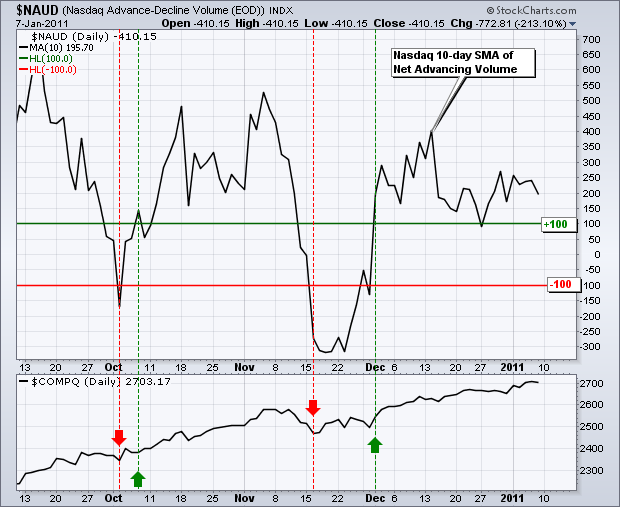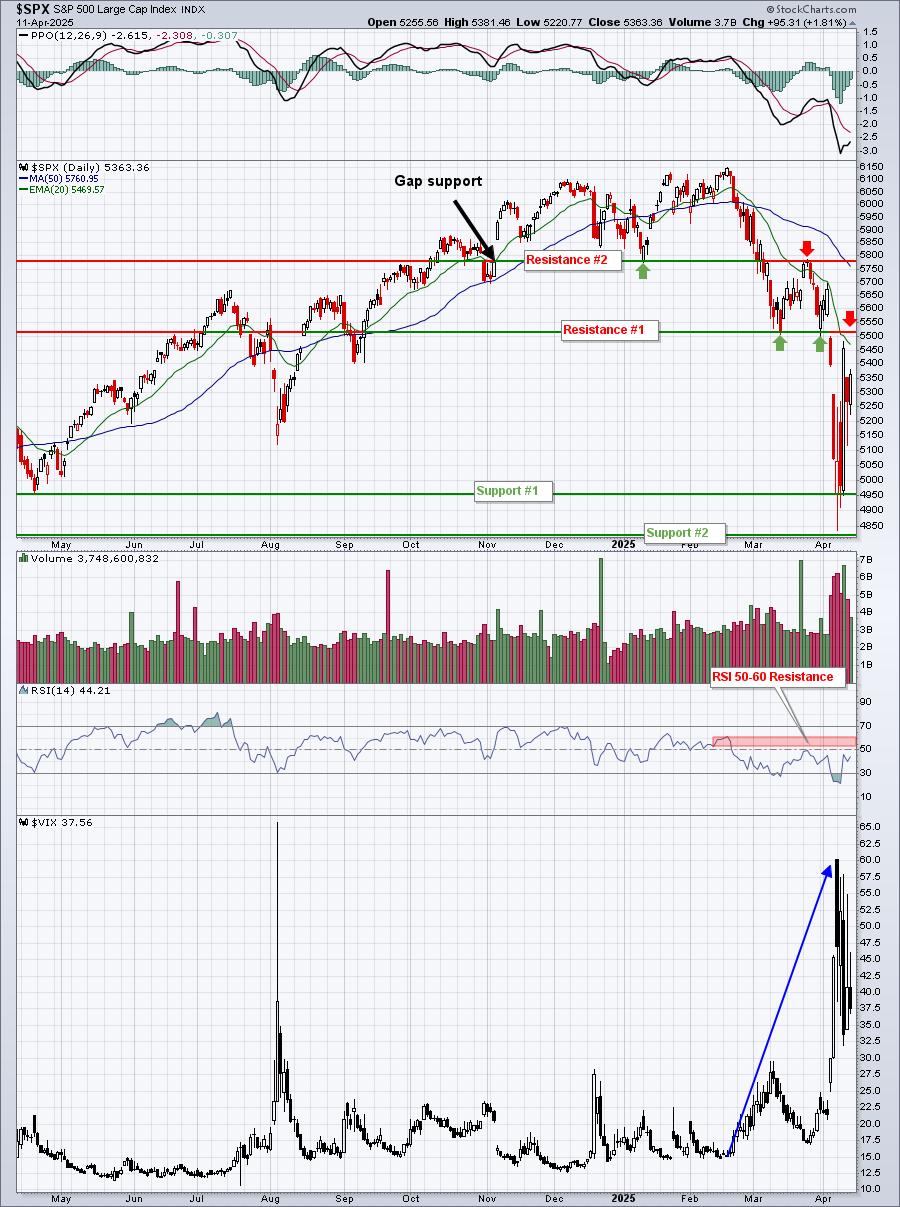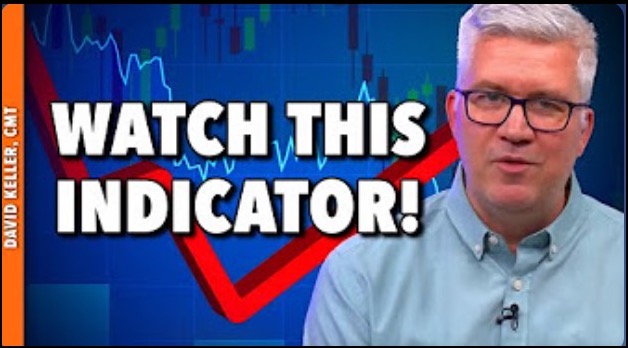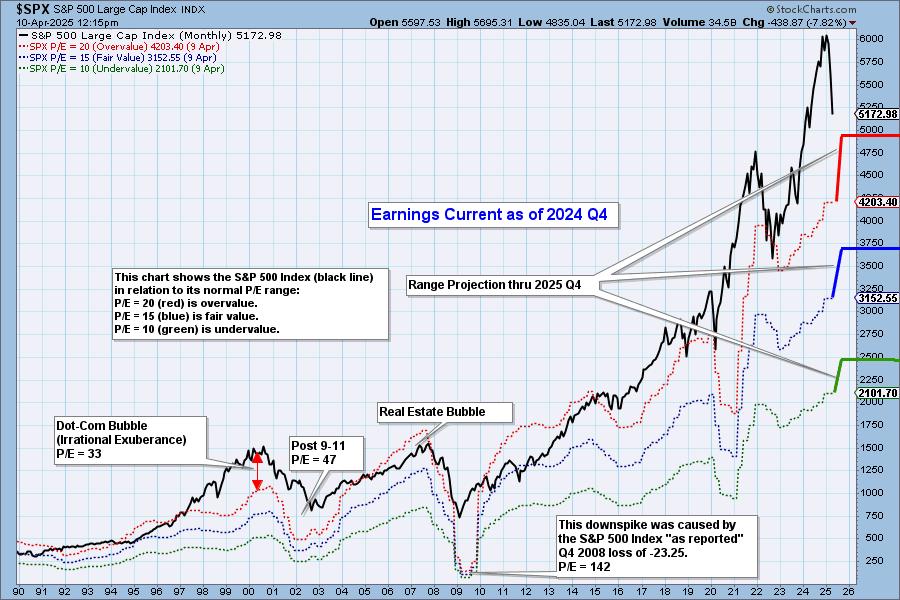Short-term breadth indicators turned bullish in early December and remain bullish. These are the 10-day SMA for Net Advances and Net Advancing Volume for both the Nasdaq and NYSE. There are two breadth indicators for each major exchange. Breadth is bullish when all four break above +100 and breadth remains bullish until all four break below -100. Using crosses above/below the zero line results in too many whipsaws. Buffers were created by basing the signal on crosses just above or below the zero line. Despite some lag, these breadth indicators are extremely helpful in defining the short-term trend. The charts below show the 10-day SMA for Nasdaq Net Advancing Volume ($NAUD) and NYSE Net Advancing Volume ($NYUD) with green/red lines marking the bull/bear crosses. There are currently no signs of significant selling pressure as both remain in positive territory. Even though buying pressure has weakened since mid December, it will still take a move below -100 to show selling pressure significant enough to warrant a bearish signal. Readers can click on these charts to see the settings. The other two indicators are the 10-day SMA for Nasdaq Net Advances ($NAAD) and NYSE Net Advances ($NYAD).
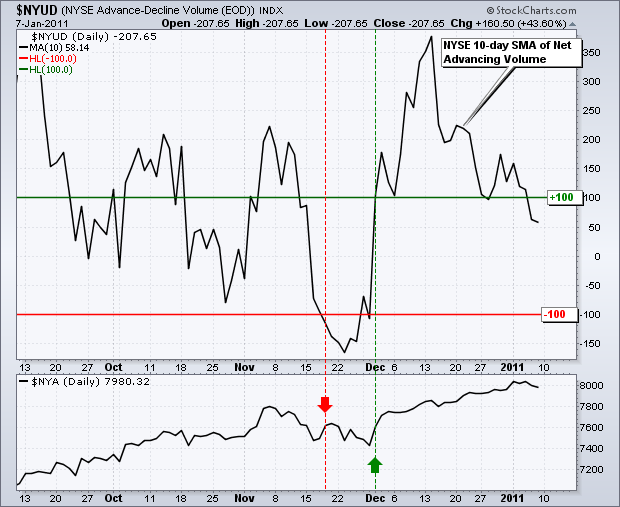
SPY remains in a medium-term uptrend as the ETF recorded a new 52-week high last week. SPY started the week strong with an open above 126, but then stalled the rest of the week. There were three red candlesticks (down days) and two black candlesticks (up days). Even though buying pressure subsided, selling pressure did not intensify and the ETF closed above 127 on Friday. The 60-minute charts hold the key to a pull back or correction. Should one take hold, broken resistance around 122 marks the first support level to watch.
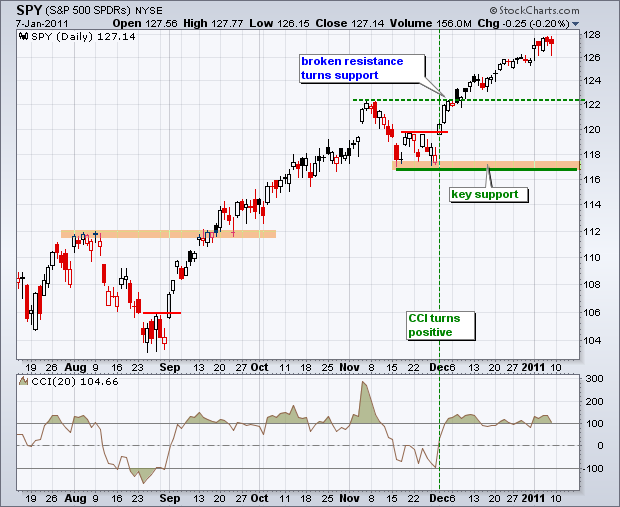
On the 60-minute chart, SPY remains in a rising price channel with key support at 126. The ETF bounced off this level twice last week and RSI bounced off 40 on Friday. A move below 126 would break channel support and most likely push RSI below 40. The combination would signal a short-term trend reversal and the start of a correction on the daily chart. I will also be watching the breadth indicators above for confirmation.
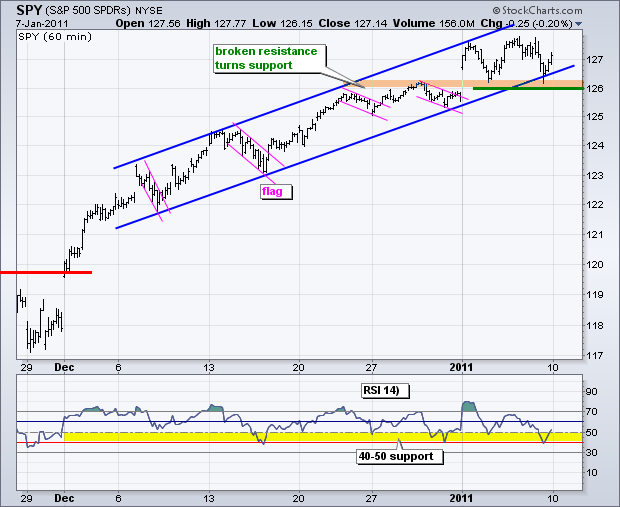
Key Economic Reports:
Tue - Jan 11 - 10:00 - Wholesale Inventories
Wed - Jan 12 - 07:00 - MBA Mortgage Purchase Index
Wed - Jan 12 - 10:30 - Crude Inventories
Wed - Jan 12 - 14:00 - Fed's Beige Book
Thu - Jan 13 - 08:30 - Initial Claims
Thu - Jan 13 - 08:30 - PPI
Fri - Jan 14 - 08:30 - CPI
Fri - Jan 14 - 08:30 - Retail Sales
Fri - Jan 14 - 09:15 - Industrial Production
Fri - Jan 14 - 10:00 - Business Inventories
Charts of Interest: Tuesday and Thursday in separate post.
-----------------------------------------------------------------------------
This commentary and charts-of-interest are designed to stimulate thinking. This analysis is not a recommendation to buy, sell, hold or sell short any security (stock ETF or otherwise). We all need to think for ourselves when it comes to trading our own accounts. First, it is the only way to really learn. Second, we are the only ones responsible for our decisions. Think of these charts as food for further analysis. Before making a trade, it is important to have a plan. Plan the trade and trade the plan. Among other things, this includes setting a trigger level, a target area and a stop-loss level. It is also important to plan for three possible price movements: advance, decline or sideways. Have a plan for all three scenarios BEFORE making the trade. Consider possible holding times. And finally, look at overall market conditions and sector/industry performance.

